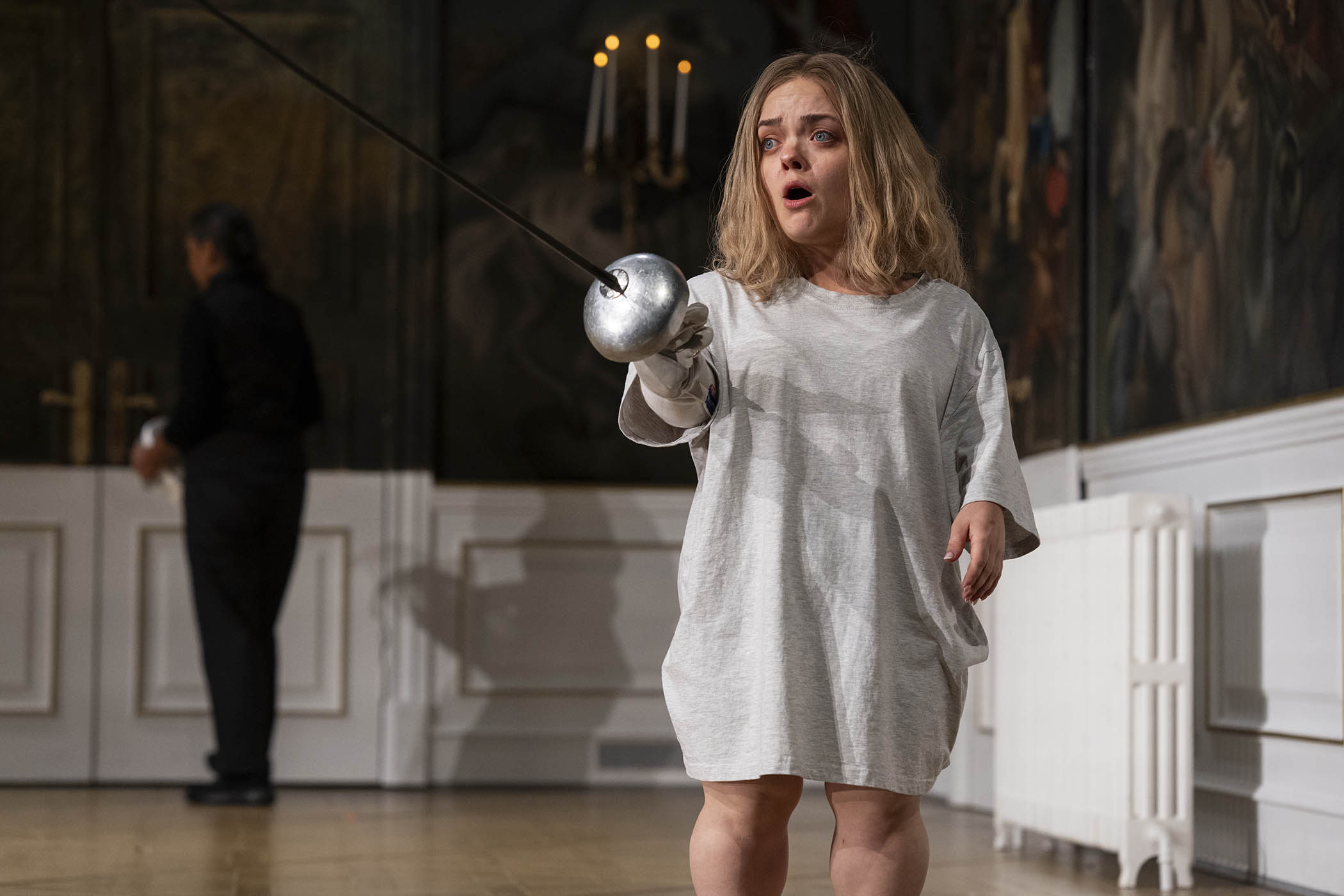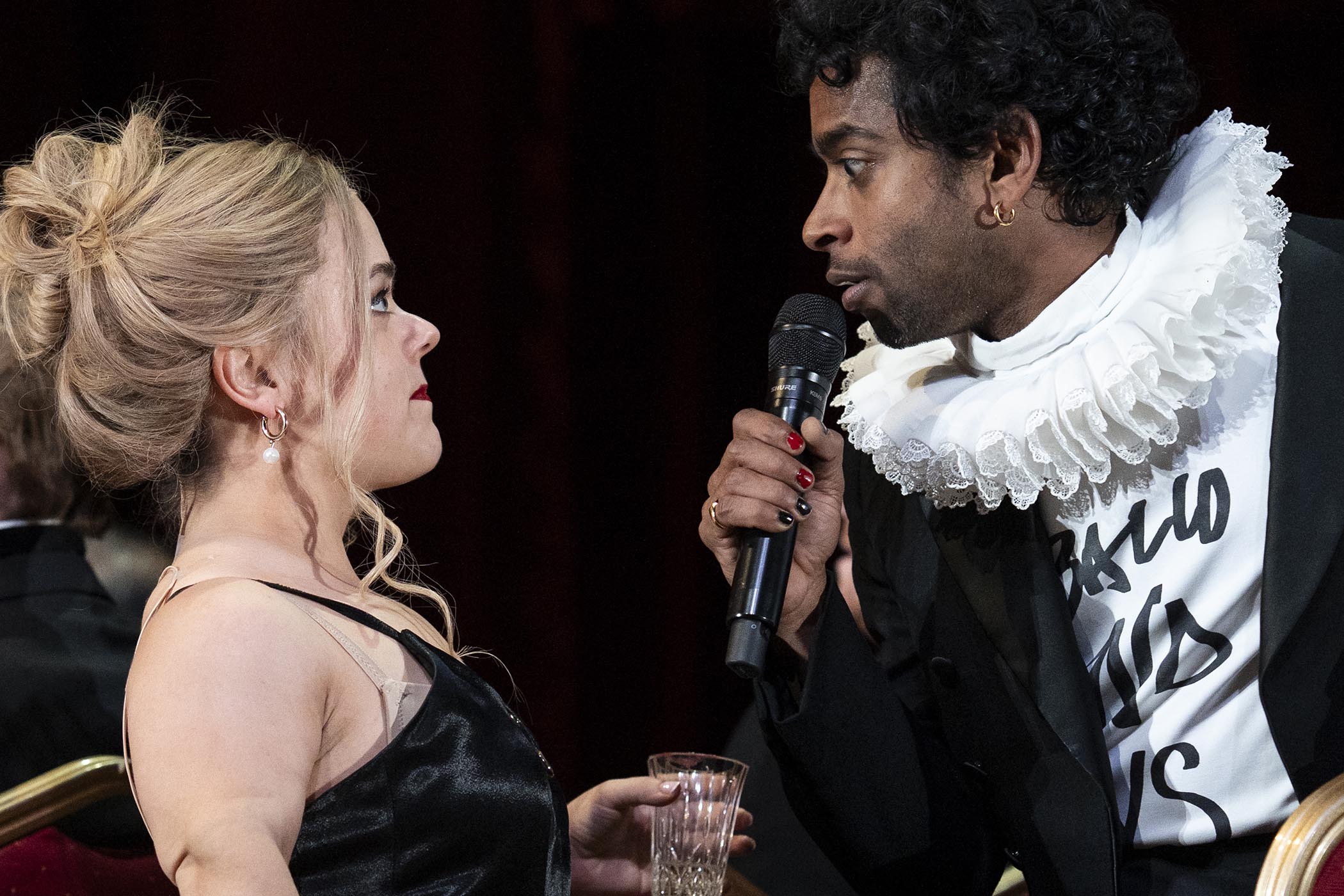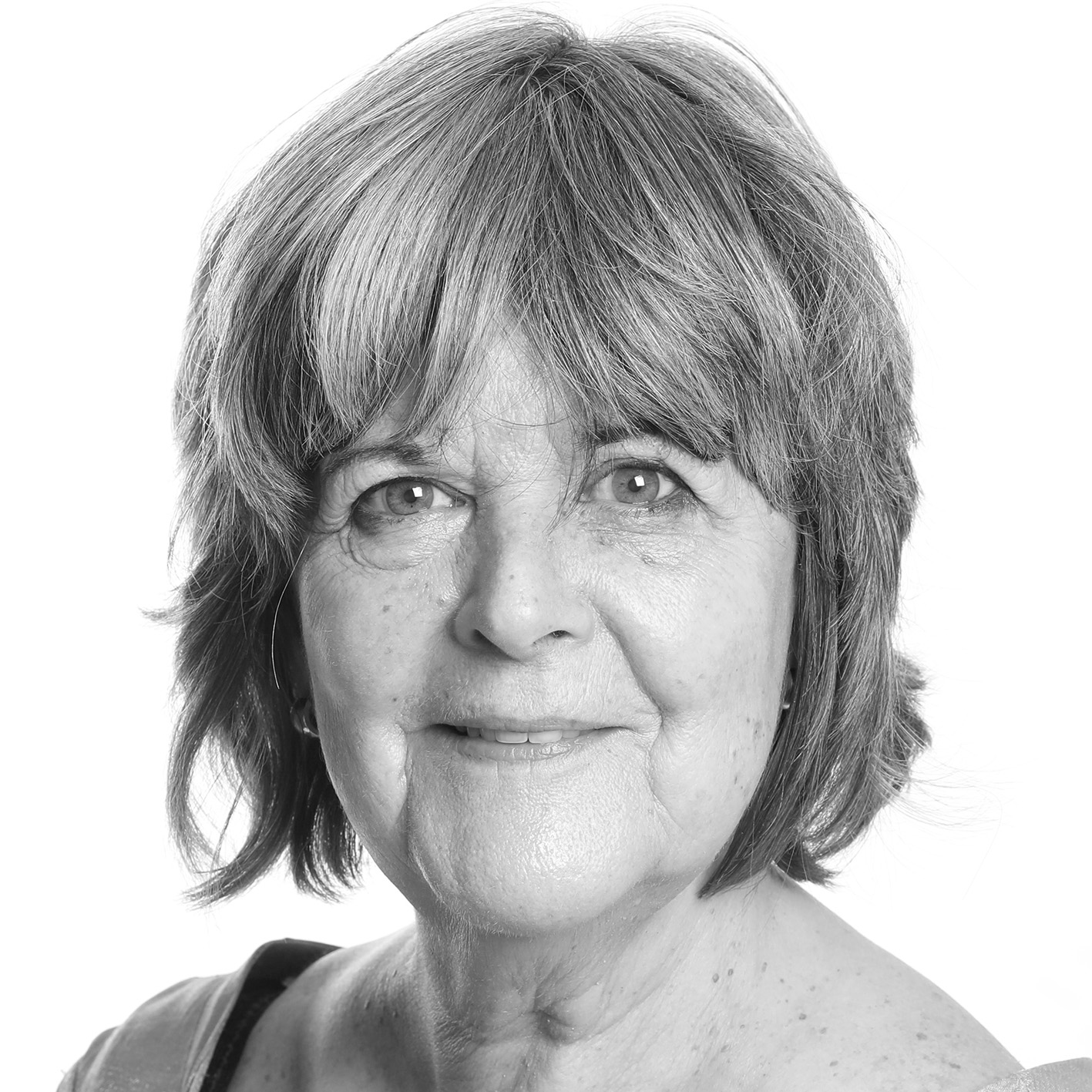Nine years ago, Hiran Abeysekera was superb in Simon Godwin’s production of Hamlet. He spoke throughout with exemplary crispness, then in the play’s closing moments let rip a terrible howl. There was the essence of Shakespeare’s tragedy in one performance: words, words, words, and then ragged anguish – before the rest was silence. I have now reviewed the play in The Observer 35 times and not heard anything like it.
That was Abeysekera as Horatio. Now he plays the Prince, but he acts with less command. Directed by Robert Hastie, deputy artistic director at Indhu Rubasingham’s National Theatre, this Hamlet has a hero who whirrs away on the spot, capering, choppy, often comic. Antic rather than mad, obsessive rather than possessed, he is a high-speed collection of mannerisms, in speech and gesture: while deciding whether to be or not, he puts an imaginary gun to his head.
Mills makes you believe Ophelia had a point, that her life could have been different
Mills makes you believe Ophelia had a point, that her life could have been different
All the soliloquies are gabbled, as if they were impediments to the main point rather than the heart of the action. No audience now is likely to think Hamlet must be delivered in a slowly poured soup of self-regard: speed of thought is this prince’s gift and part of his problem; and tragedy teeters on the brink of comedy. Yet this rapidity is relentless: not so much a refreshing irreverence as a flattening.
Abeysekera’s talent gleams through, as it did in Life of Pi, in Peter Brook’s The Prisoner and in Abeysekera’s creation of the man who killed Gandhi in The Father and the Assassin. He makes his eyes double in size and burn; he moves as if on a high wire; in dealing with the amusingly goofy Rosencrantz and Guildenstern (rugby shirt and blazer, Hari Mackinnon and Joe Bolland), he bats the dialogue as lightly as a shuttlecock. Yet there is a crucial lack here: he does not suggest an inner propulsion.
Hamlet might think it is all about him, but this is a cathedral of a play: even if you don’t want to worship in the nave, you can have a stirring experience in one of the side chapels. Hastie’s production loses pace halfway through and has some duff casting in minor roles, but Geoffrey Streatfeild is an appealing, ukulele-strumming Polonius, and Alistair Petrie and Ayesha Dharker are proficient as Claudius and Gertrude – though, like members of other royal families, with some reserve, bestowing themselves on their duties, not carried away.

Francesca Mills is magnificent as Ophelia
The jewel of the evening is Francesca Mills, magnificent as Ophelia. It often seems a thankless part: continually being instructed; more described than describing; most loquacious when her words are most fractured. Mills makes you believe the woman had a point, that her life could have been different. She is a wit who has wits to lose. Ferocious and funny, she bounces impudently around the action, parroting her dad’s sententious advice. Her delivery of the speech about Hamlet’s collapse – “O, what a noble mind is here o’erthrown!” – is so strong, it seems to engulf the stage: as if her lover’s disarray is refracted everywhere. Her voice sounds laden with tears and yet has not a tremor in it; her singing is as deep as it is sweet; when in madness, she flaps like a moth – she is desolating.
Mills is worth a trip across town. As is a transfixing opening sequence that goes to the heart of the drama. Alexandra Faye Braithwaite’s soundscape sends a sigh through the air, while for long minutes darkness is pierced only by the light of swivelling torches: no surprise that the lighting is the work of Jessica Hung Han Yun, one of the most illuminating of designers. To intermittent light the ghost appears – “that thing” – as solid as his watchers, and proceeds, to the first of many uneasy nervous audience laughs, to melt in and out of visibility.
The play’s thriller aspect is wonderfully captured. As is one of the moral debates: the difference between the elegant old regime and the bawdy new one. In Ben Stones’s design, Hamlet’s mates (who include a Horatia) are ghost-struck in a stately home that is wallpapered in russet-coloured scenes of Frederiksborg Castle and glowing woods. Until riotousness bursts in with a banquet scene of warmth and light and candles and the usurping king.
Ophelia is getting tipsy in a cocktail dress and diners stamp the floor in a drinking song: cleverly, chillingly, they are roaring the words Ophelia will sing when mad. If only the rest of the evening pulsed with such ingenuity.
Hamlet is at the Lyttelton, National theatre, London, until 22 November
Newsletters
Choose the newsletters you want to receive
View more
For information about how The Observer protects your data, read our Privacy Policy
Photographs by Sam Taylor

